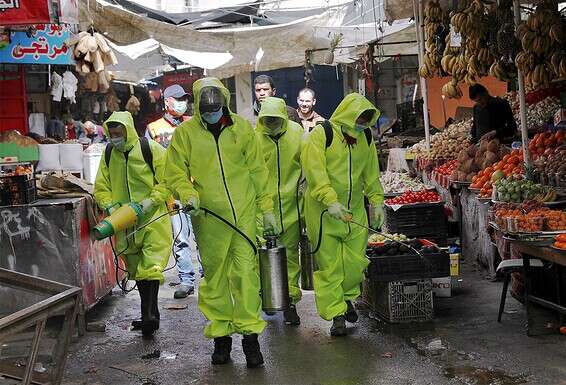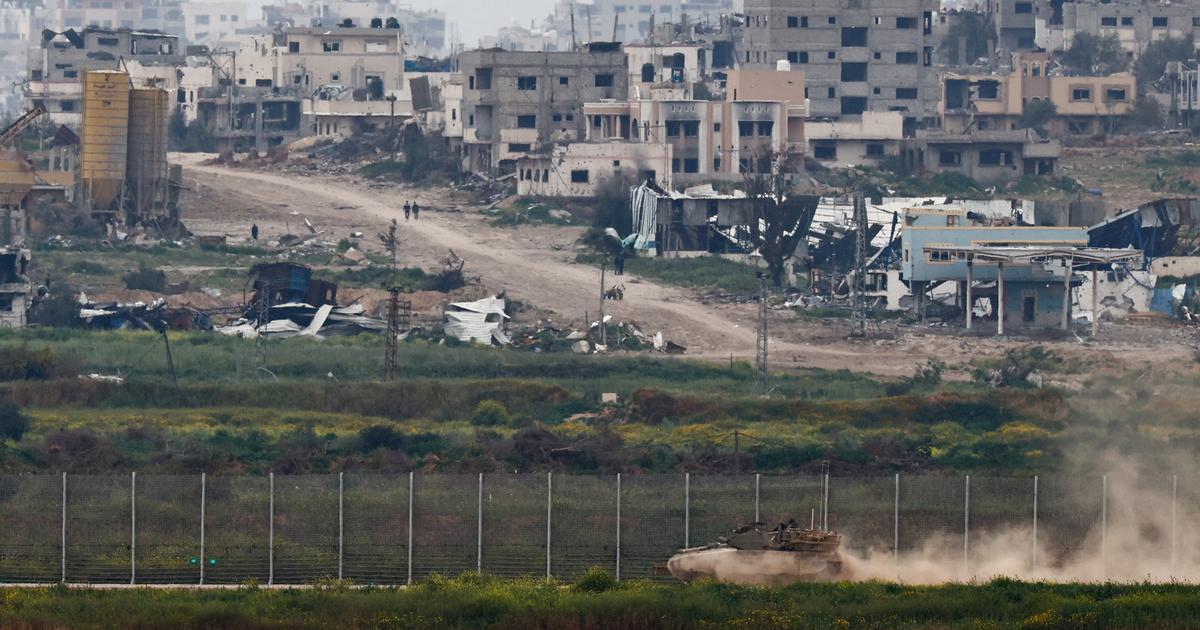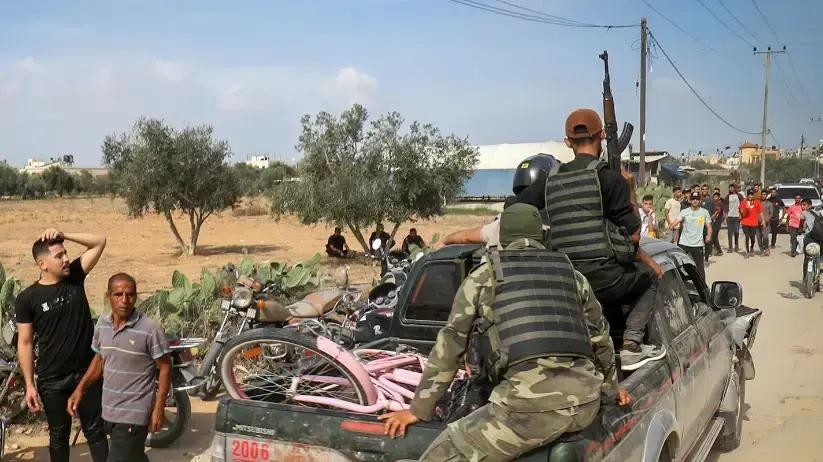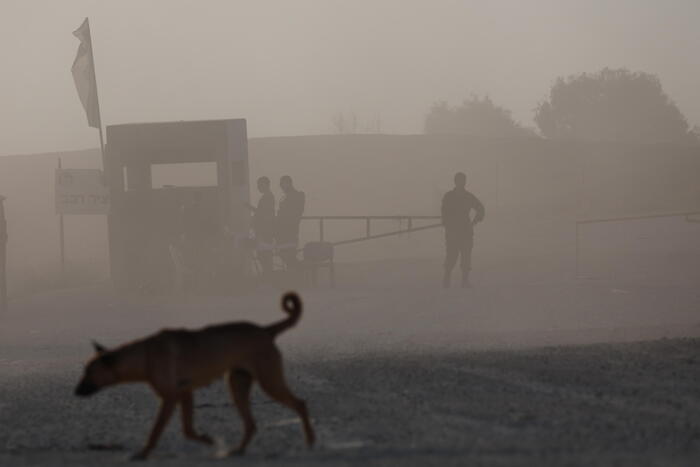Israelis and Palestinians are in the same vein in the battle against the virus
Israelis and Palestinians are in the same ditch in the fight against a common enemy - the spread of the Corona virus. With the exception of a few ugly cases, everyone in both societies understands that this deadly and silent enemy must be jointly addressed, without propaganda or politics.
The epidemic reminds Palestinians and Israelis of their fate. The border between Israel and the West Bank or Judea and Samaria is a border through which tens of thousands of people pass from one side to the other. The dangers to Israelis are the same dangers of Palestinians in the West Bank and Gaza. If they are not vigilant and if they do not fight thoroughly and jointly against this virus, both parties will suffer.
Gaza exports more than 600,000 anti-corne virus masks // Photo: Reuters
Israel's and the Palestinian Authority's response to the epidemic is an indication that Israelis and Palestinians are capable of overcoming some of the obstacles that have shaped their relationship over decades. These are obstacles that are perceived as impossible to overcome. We are aware that to a large extent the willingness to hold this cooperation is due to the recognition that the absence of the parties' collective health, economy, welfare and security will be harmed.
More on:
Israel and the PA formed a joint brigade to fight Corona
On the Corona seam line
No vaccine for incitement | opinion
Corona in Gaza? The responsibility will fall on Israel
However, cooperation is a good start and should not be underestimated or ignored. President Rivlin duly reflected this feeling when he called on Palestinian Authority Chairman Mahmoud Abbas, saying that "the entire world is dealing with a human-to-human and non-residential crisis", stating that "our cooperation is necessary for the health of Israelis and Palestinians. As one. ”Abbas in response offered his full cooperation in the war against this deadly disease.
Thanks to the Corona - no boycott
The Palestinian boycott of contacts with Israel has disappeared, with the exception of some Palestinians who define themselves as influential or leaders. As a result, Israeli and Palestinian officials are coordinating joint action against the epidemic. Both sides work constructively, side by side.
Yotam Sheffer, who is in charge of an international department in the government activity coordinator unit in the Occupied Territories, also said that the cooperation between Israelis and Palestinians is "very strong and strong." Among other things, Israel provides training to Palestinian medical teams in Israeli hospitals and conducts joint workshops.
Israeli laboratories analyze samples of Palestinians to detect the virus, doctors on both sides share each other with information and decoding, thousands of test kits have been transferred to the Palestinian Ministry of Health, and protective equipment has been passed on to medical teams and Palestinian security personnel.
In a rare but important step, Israel has also enabled the transfer of critical equipment and supplies from Israel, from the Palestinian Authority and international donors to the Gaza Strip, and has facilitated the transfer of critical manpower. Usually, Israel allows about 145,000 Palestinian workers to enter its territory every day. Their transition is essential to the Palestinian economy in the West Bank. Palestinian workers receive fair housing and proper sanitary conditions while working in Israel.
In an unprecedented move, Israel allowed 45,000 Palestinian workers to come and sleep in Israel for at least a month or two during this crisis. The Palestinian workers' movement is coordinating between the Israeli and Palestinian governments to reduce the virus transmission from one region to another.
Long way to peace
The epidemic highlighted the extent to which the Israeli and Palestinian economies are interconnected. The crisis validates the argument that it is economically better for Israel to use Palestinian workers than to import workers from the Far East or Eastern Europe.
Ultimately, if Palestinians work with Israel in the high-tech field, they too will benefit. Instead of moving key parts of the Israeli high-tech sector out of the country, into Eastern Europe and beyond, the Palestinians can receive training to work in the Israeli high-tech scene and continue to grow the Palestinian high-tech sector that is still in its beginnings.
Out of the epidemic is the hope that the Palestinians and Israelis can cooperate and put ordinary politics aside, at least for the duration of the crisis and the hope that follows. So far, except for a few cases, both sides have shown that with goodwill and noble intentions, they can indeed work together.
It is still too early to say whether this new cooperation will lead to good faith negotiations and a comprehensive peace agreement. We do not say this cooperation is the key to resolving the key issues that need to be resolved before achieving peace for both parties.
No one can predict what will happen when life goes back to normal, or any path that is set to normal, when the immediate danger of the epidemic goes away, and what will happen if the epidemic returns at some point. But these two companies have for too long been mutually distrustful and live apart. Breaking this circle can only help in any effort to promote peace.
We hope that the lessons learned from this epidemic and the atmosphere of mutual respect and cooperation will continue, so that progress toward a peace agreement can be built on similar components of goodwill, respect and cooperation. The time has come for a new Israeli-Palestinian dynamic. The time has come for a new future for Israelis and Palestinians and the region.
Jason D. Greenblatt served as President Trump's advisor and emissary for international negotiations. He is a partner on OurCrowd, the world's largest stock financing platform for shares.
Bishara Habash was a member of the Palestinian delegation for multilateral peace talks and is a former lecturer at Harvard University
and a senior at the University's Middle East Institute.









